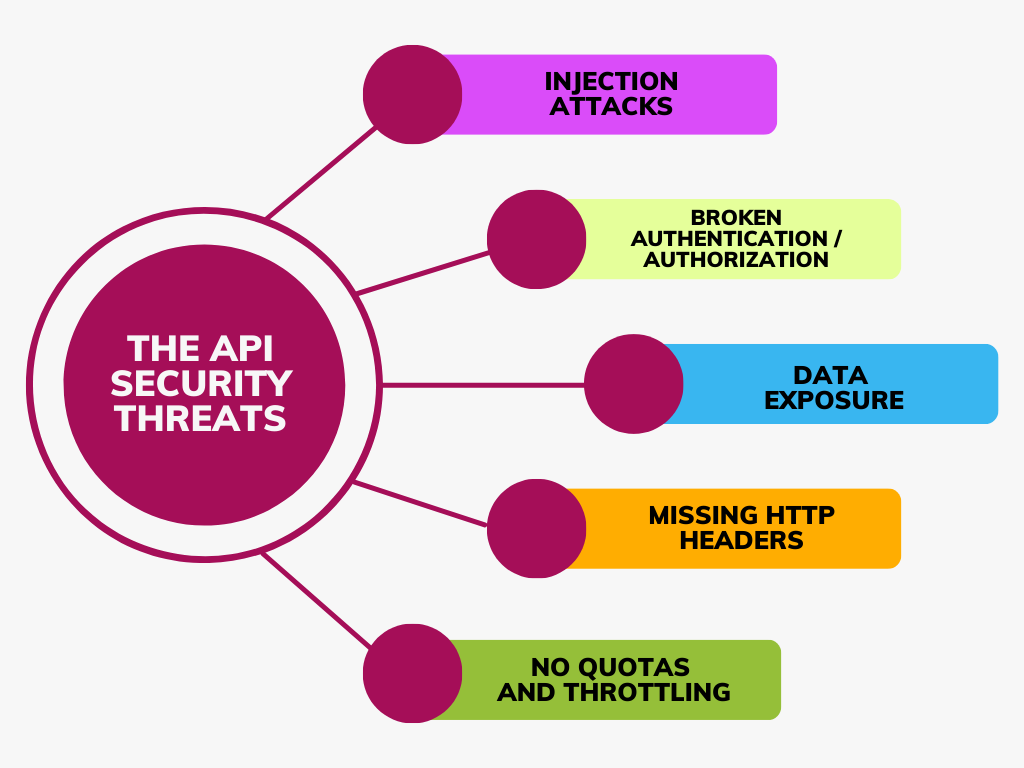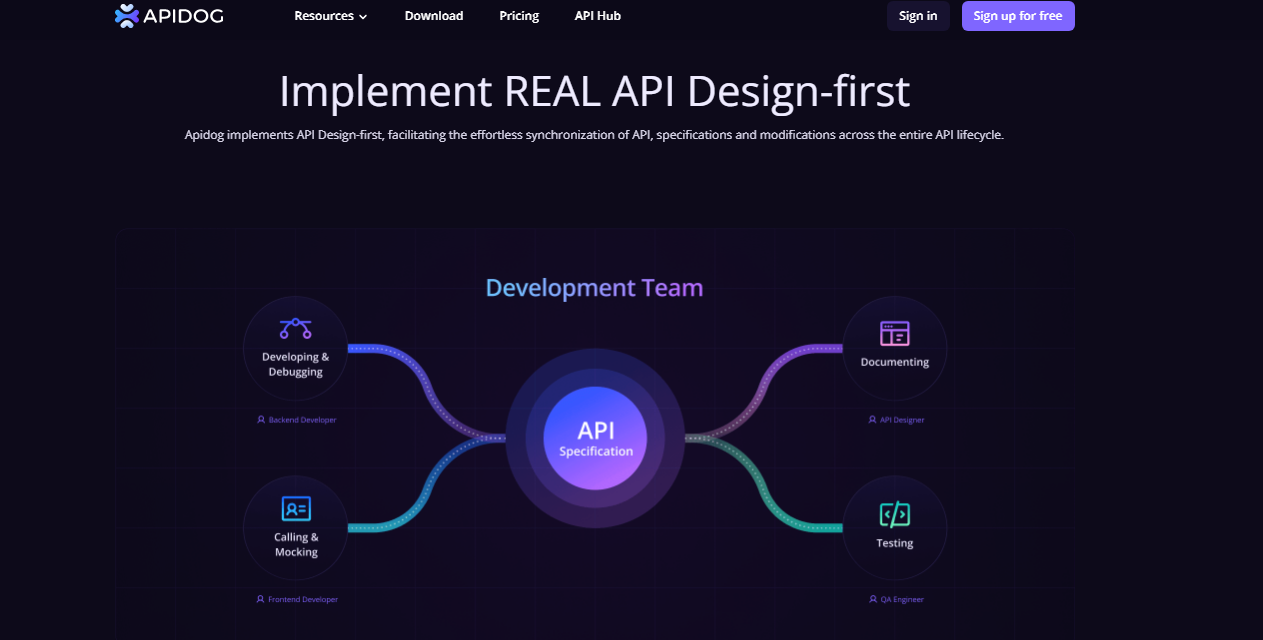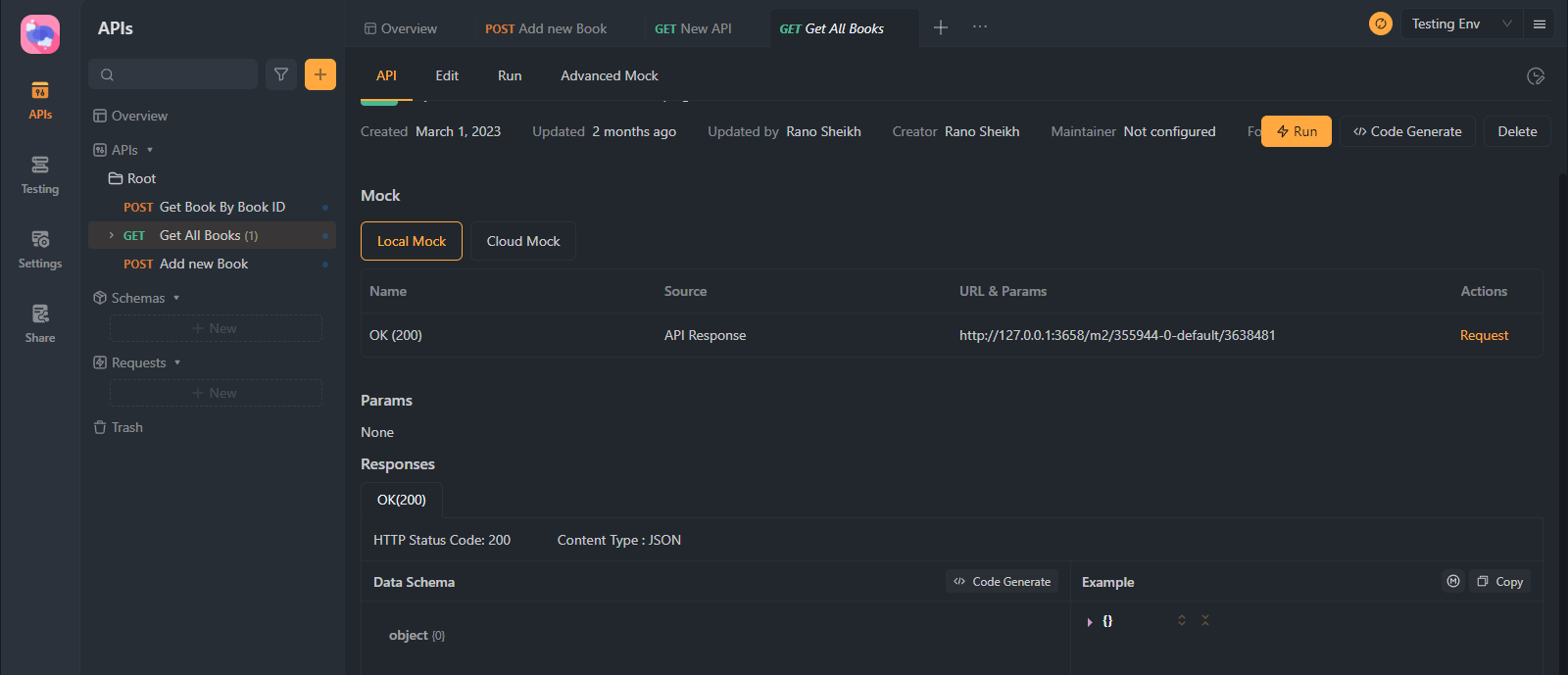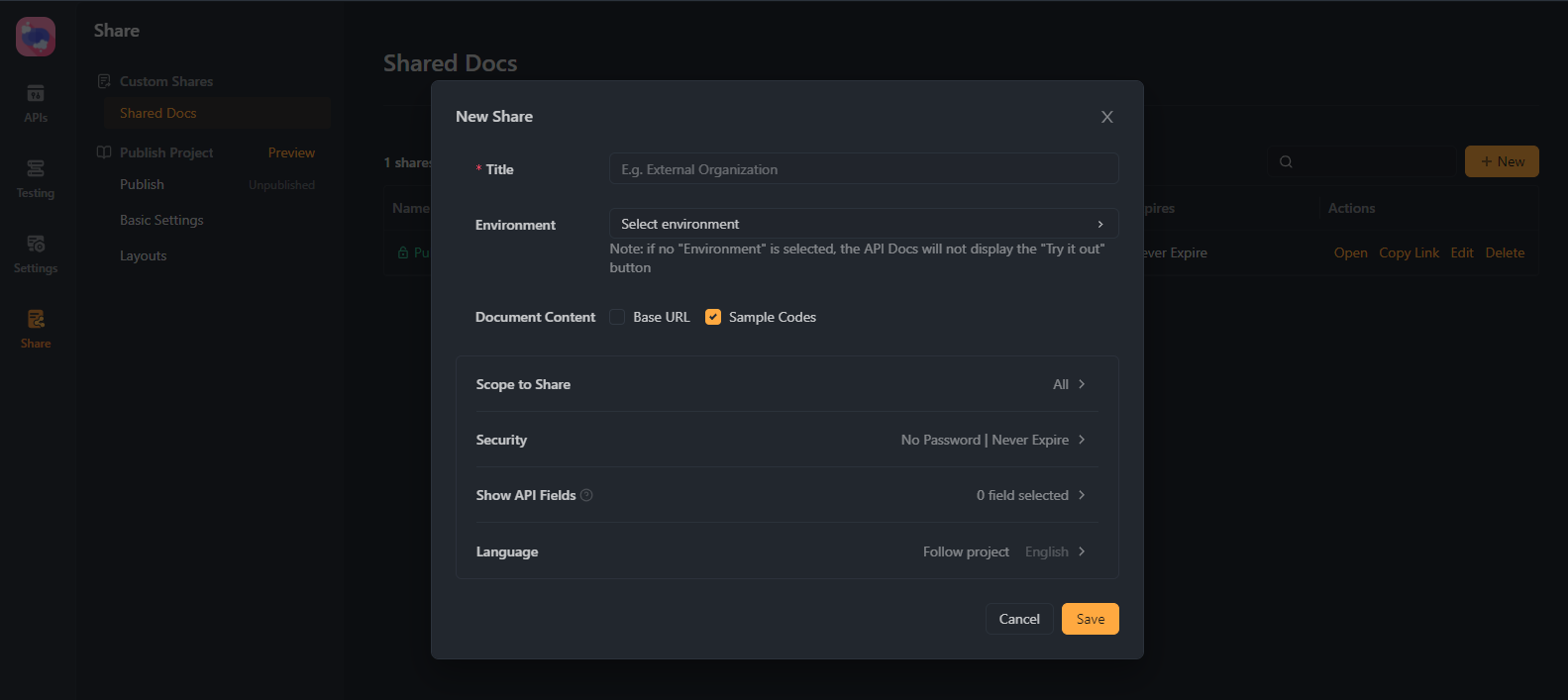Elevate your API security with Apidog - unparalleled protection for your digital assets.
Picture this: you're in a bustling city, and APIs are the intricate network of roads connecting various destinations. Now, imagine these roads without traffic signals or rules - chaos, right? The same principle applies to APIs. APIs can become vulnerable to threats without proper security measures, causing disruption and potentially leading to a massive data breach. As more and more services become interconnected in today's digital ecosystem, the stakes for API security keep getting higher.
Moreover, recent studies indicate a significant increase in API-related security incidents, reflecting the heightened risk in the current API landscape. As APIs act as gateways to valuable data and services, they're attractive targets for cybercriminals. Therefore, Robust API security isn't just a luxury – it's a necessity.

What is API Security
So, what exactly is API security? API security involves practices and protocols to protect APIs from misuse or malicious attacks. It covers everything from the accurate identification and authentication of users to ensuring data integrity and privacy.
But API security isn't just about erecting barriers. It's about building secure, reliable pathways for data exchange. It's about ensuring that your APIs function as intended, only granting access to the right users and services while keeping cyber threats at bay.
Why is it Important?
API security plays a vital role in today's digital landscape for several reasons. Firstly, it protects sensitive data by acting as a gatekeeper for personal and financial information. Robust API security measures prevent unauthorized access, ensuring data breaches, trust breaches, and regulatory violations are avoided. Secondly, API security helps prevent significant financial losses resulting from data breaches and cyberattacks. This includes mitigating regulatory penalties, minimizing business disruptions, and reducing remediation costs.
Lastly, API security safeguards a company's reputation in the digital era. Security incidents can damage reputation and erode customer trust, while maintaining secure APIs and prioritizing customer privacy and security enhances a company's reputation. By prioritizing API security, organizations can effectively protect sensitive data, prevent financial losses, and maintain a positive reputation in today's interconnected digital landscape.
The API Security Threats
APIs, vital to the operations of contemporary businesses, have unfortunately become a favored target for cyberattacks. The initial step in forging a stronger API security strategy is identifying and understanding the potential threats they face.

Let's delve into some of the most prevalent API security threats:
Injection Attacks: Attackers introduce malicious data into API commands or queries, causing data loss, corruption, or unauthorized access. Prevent these attacks by validating and sanitizing inputs and using parameterized queries or prepared statements.
Broken Authentication and Authorization: Vulnerabilities in authentication and authorization processes allow attackers to perform unauthorized actions and access data beyond their permissions. Mitigate risks by implementing robust authentication and authorization mechanisms, such as MFA and RBAC.
Excessive Data Exposure: Exposing more data than necessary increases the risk of data breaches. Follow the principle of least privilege and scrutinize data on the server side to avoid inadvertently revealing sensitive information.
Improperly Set or Missing HTTP Headers: Misconfigured or missing HTTP headers can lead to unintended data exposure. Use security headers like Strict-Transport-Security, X-Content-Type-Options, X-Frame-Options, and Content-Security-Policy to enhance API security.
Failure to Implement Quotas and Throttling: Without quotas and throttling, APIs are vulnerable to brute force and DoS attacks. Control the number of requests by imposing rate limits and throttling to reduce the risk of such attacks.
Examples of API Security Breaches:
Here are some API security breaches that caused aloft of trouble.
Facebook-Cambridge Analytica Data Scandal (2018):
It is one of the most infamous examples of API security breaches. An app developer accessed millions of users' data without consent through Facebook's API and shared it with Cambridge Analytica, a political consulting firm.
Strava Heat Map Incident (2018):
Strava, a social network for athletes, unintentionally exposed the location of military bases and patrol routes in Afghanistan and Syria through its API. It happened because the API shared the GPS coordinates of its users' fitness activities.
Twitter API Security Breach (2013):
Twitter's API was exploited to gain unauthorized access to user data. The breach affected approximately 250,000 users, exposing email addresses, usernames, and hashed passwords.
Boost API Security Layers with Apidog (API Security Tool)
To combat these threats, you need a solution that addresses the technical aspects of API security and simplifies the process. Enter Apidog – a powerful API security tool designed to help you fortify your API defenses, streamline API management, and ensure your organization stays ahead of ever-evolving security threats.
By combining state-of-the-art security features with a user-friendly interface, Apidog helps businesses of all sizes easily develop, deploy, and manage secure APIs.
Understanding Apidog's Security-centric Approach
Apidog's security-centric approach focuses on ensuring the highest level of security for your APIs. It emphasizes proactive security measures and incorporates security considerations into every API development and operation aspect. With Apidog, you can rest assured that your APIs are protected against common threats, ensuring the integrity of your data and the trust of your customers.

Enhancing API Security with Apidog's CLI
Apidog's Command Line Interface (CLI) is a powerful tool that enhances API security by enabling developers to interact directly with Apidog from their terminals. This advanced feature offers greater control and flexibility and allows developers to automate tasks, trigger tests, and manage APIs securely. Moreover, the CLI's compatibility with CI/CD tools makes it a vital part of the secure development and deployment process.

Secured Data Transmission with Apidog SSL
SSL (Secure Sockets Layer) is an essential element of secure API communication, and Apidog's CLI doesn't fall short in this aspect. It supports SSL functionality, ensuring all data transmitted between clients and your APIs is encrypted and secure. The added support for custom SSL certificates and automatic SSL certificate management further amplifies the security of your API communication.
Protecting Data with Apidog's Smart Mock Server:
Apidog's Mock Server is a standout feature that enhances API security by simulating API endpoints. It allows developers to perform tests and developments without exposing sensitive data. The mock responses are designed to accurately mimic the actual API's behavior, enabling comprehensive testing while maintaining data security.

Test Case Management: Ensuring Robust Security:
The Test Case Management feature in Apidog is instrumental in maintaining API security. By allowing you to define, manage, and automate the execution of test cases, it aids in uncovering vulnerabilities before they can be exploited. Coupled with detailed test reports, it provides valuable insights into your API's performance and security, helping you to identify and address potential security risks swiftly.
Leveraging Assertions for Robust API Testing with Apidog:
Assertions are vital to any testing process, and Apidog's Automated Testing Tool integrates this functionality seamlessly. You can configure your APIs' test cases and assertions, which helps quickly identify and resolve vulnerabilities. It leads to automated, detailed, and regular security testing, making Apidog an invaluable tool for maintaining a secure API environment.
Boosting API Performance with Pre/Post Processors in Apidog:
Pre and post-processors in Apidog provide added flexibility and control over your API requests and responses. Preprocessors execute before your API request, allowing you to manipulate data before it's sent. Conversely, post-processors execute after the API response, enabling you to manipulate received data. This feature ensures data integrity and can help optimize API performance by transforming data into the most suitable format for your application.

Documentation Sharing Online:
Apidog facilitates secure communication between teams by offering password-protected online document sharing. It ensures all team members can access up-to-date API information, reducing miscommunication and document loss risks.

Notification Settings and Third-Party Integration
Apidog supports integration with third-party applications for notifications. It enables real-time notifications sent to third-party application platforms when a project member triggers a corresponding notification event. Currently, supported notification channels include Webhook and Jenkins.
Apidog's RBAC Security
Apidog enhances API security through Role-Based Access Control (RBAC). Allowing you to define custom roles and permissions ensures that users have access only to the necessary resources, reducing the risk of unauthorised access. This granular control of access rights significantly boosts the security of your API ecosystem.
By offering these advanced features and capabilities, Apidog goes beyond traditional API security measures. It provides an all-encompassing security framework that enables you to protect your data and applications effectively, making it an invaluable partner in your API security journey.
Best Practices for API Security:
These are some of the practices to make your API Secure
API Security Best Practices: Building a Secure API Design
Initiating your API development with a security-focused design is fundamental. Practices like encryption, robust authentication, data validation, and the principle of least privilege should be at the heart of your API design. Limiting data exposure and functionality will fortify your API security from the start.
Regular API Security Testing: Your First Line of Defense
API security isn't a set-and-forget procedure; it requires consistent testing. Regular penetration testing, vulnerability assessments, and security audits can help identify any weak points in your API security before they are exploited. With Apidog, you can automate and manage these security tests efficiently.
Access Control: A Key Element in Enhancing API Security
Robust access control measures are crucial in maintaining API security. Apidog's Role-Based Access Control (RBAC) feature is an excellent example, allowing you to define custom roles and permissions, ensuring users access only necessary resources. This granularity in access rights significantly strengthens your API security.
Leveraging Secure Communication Protocols for API Security
Ensure that data transmitted between clients and your APIs is encrypted using secure protocols such as SSL/TLS. This encryption ensures that any data in transit remains secure, bolstering your overall API security.
Real-Time Security Monitoring and Alerts: The Watchtower of API Security
Stay abreast of your real-time API traffic, errors, and security events. Apidog allows you to integrate third-party applications, enabling real-time notifications when a potential security threat is triggered. This constant vigilance enhances your API security.
Regular API Management Security Updates and Patches : The Maintenance of API Security
Regularly update and patch your APIs to protect against known vulnerabilities. Staying up-to-date with security updates is crucial to maintaining a secure API environment.
Secure Error Handling: An Overlooked Aspect of API Security
Ensure your APIs reveal only a little information when errors occur. Careful error handling can prevent potential attackers from gaining valuable insights into your API structure, enhancing your API security.
Summary
In conclusion, ensuring robust API security is paramount as APIs become increasingly critical in today's digital landscape. To safeguard their API ecosystems, businesses must adopt best practices like secure API design, regular testing, robust access control, and real-time monitoring.
Don't leave your API security to chance. Harness the power of Apidog's comprehensive API security solutions and fortify your digital infrastructure today. Secure your APIs with Apidog, your trusted partner in robust API security.



